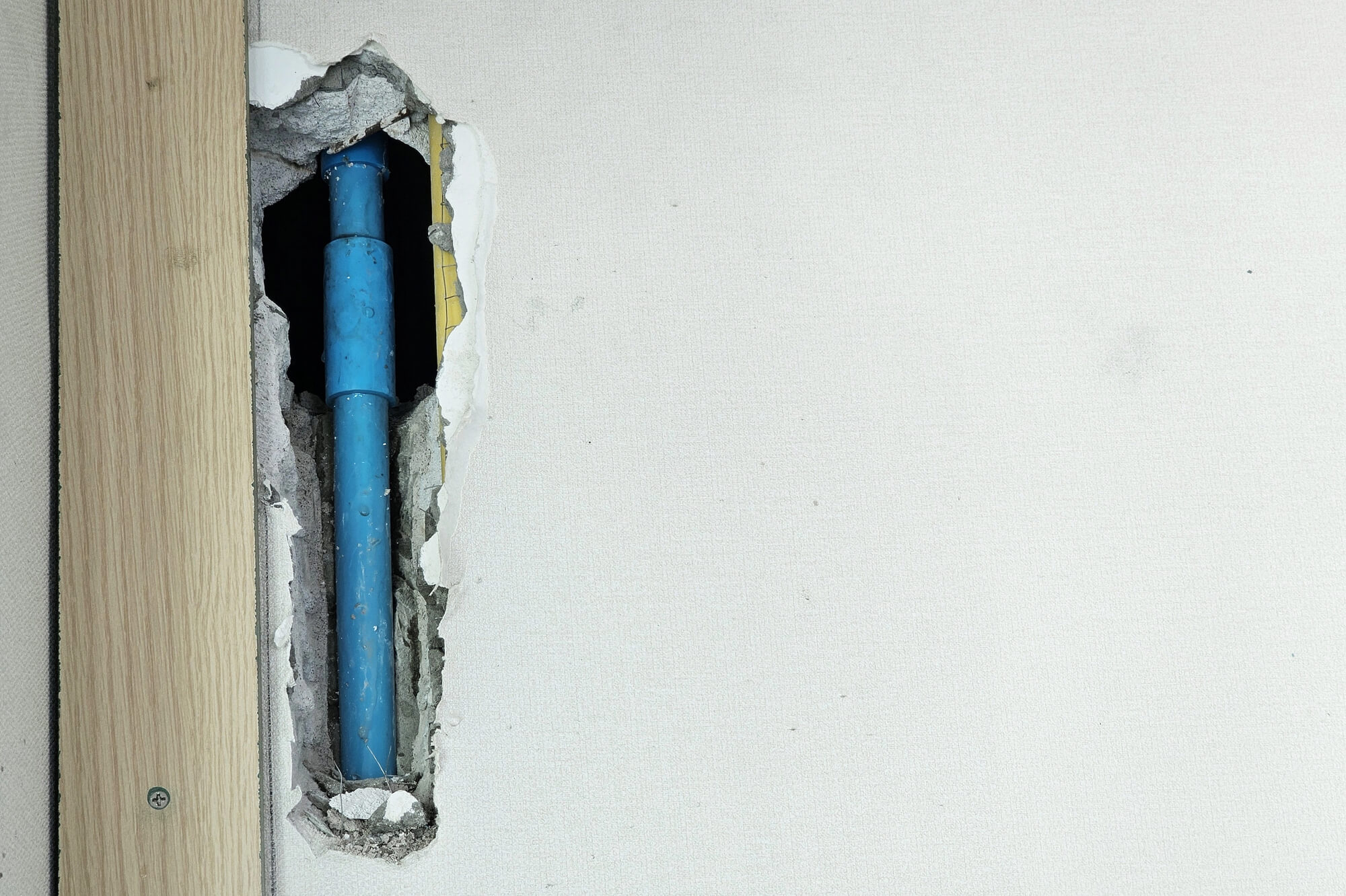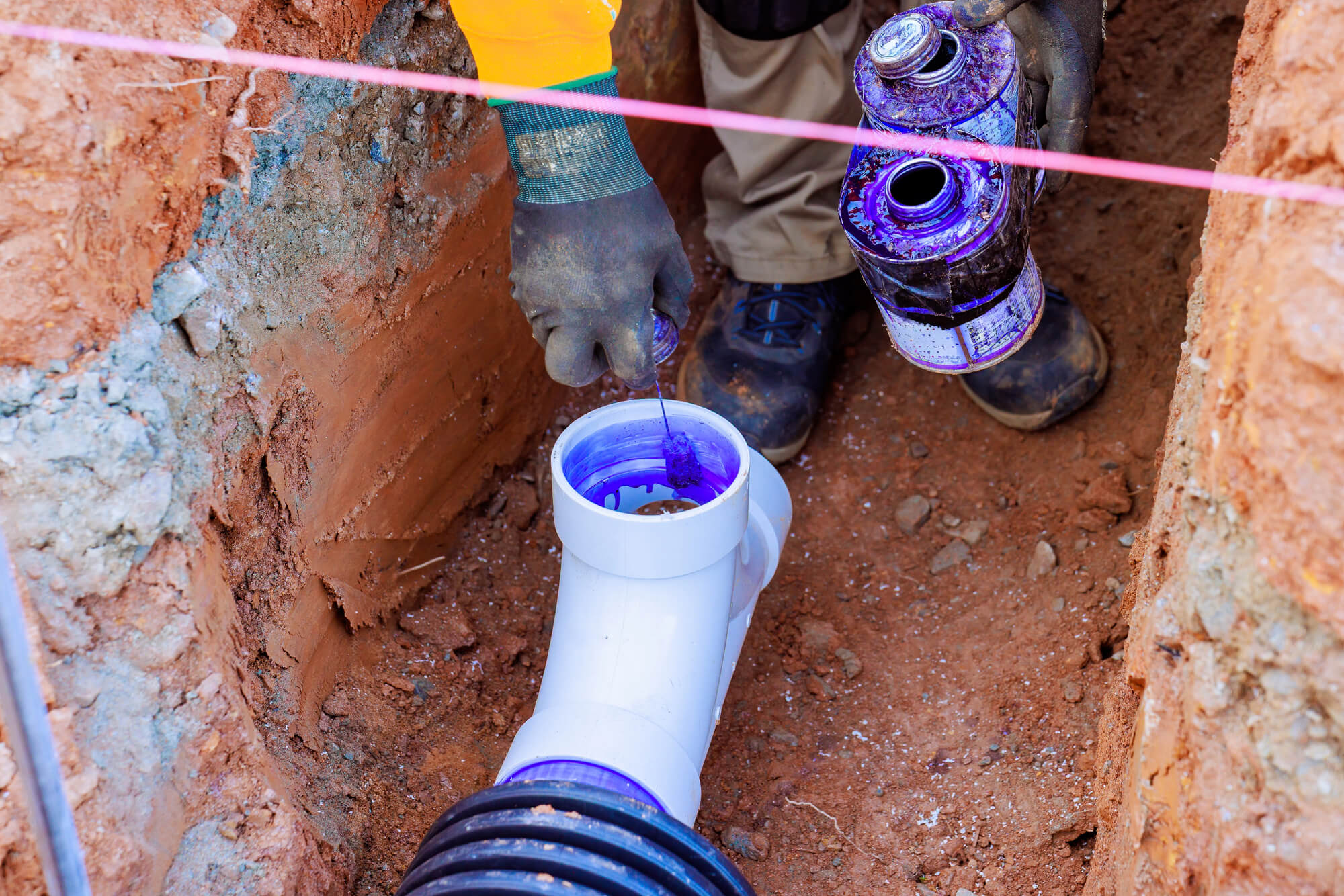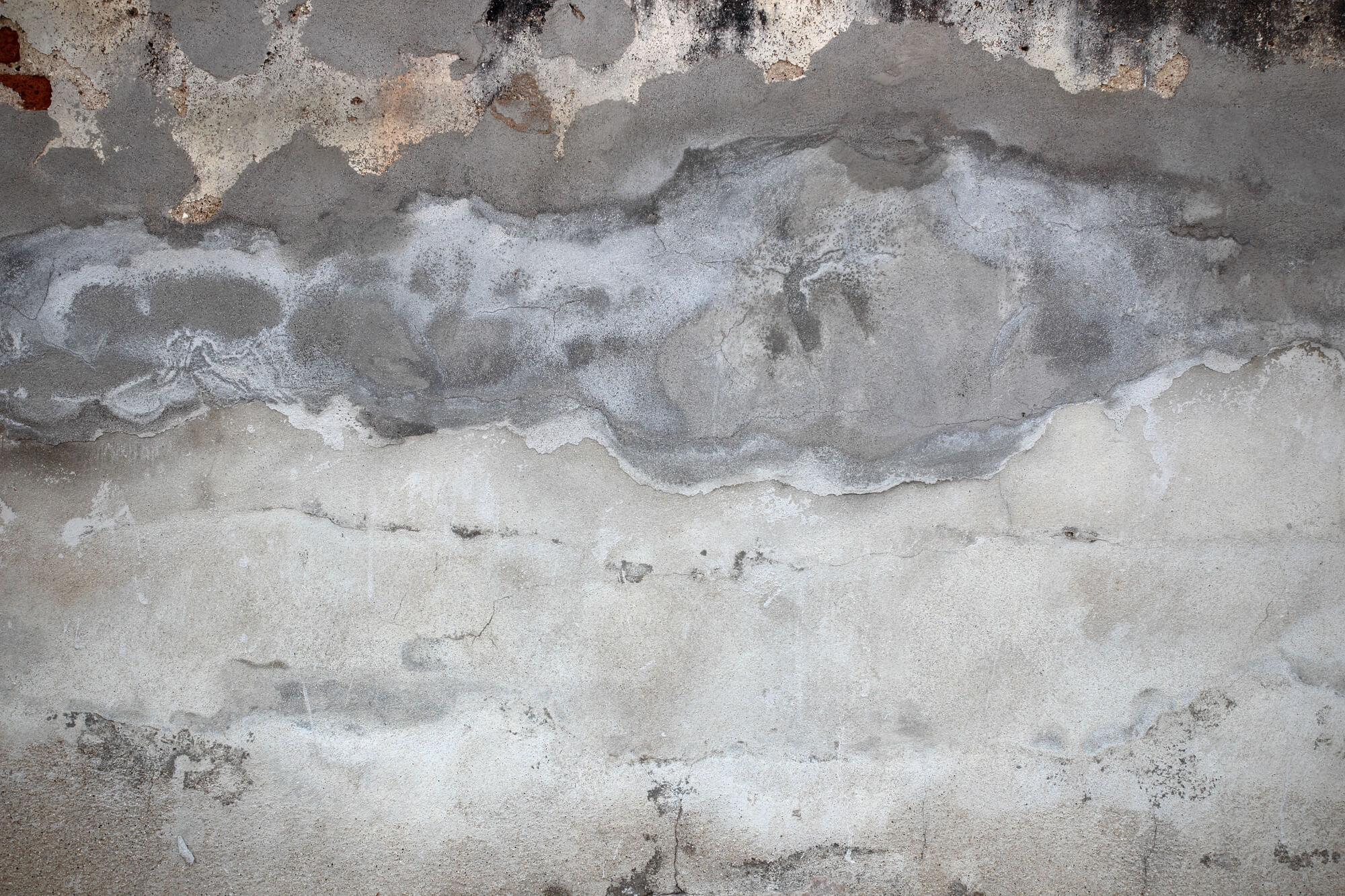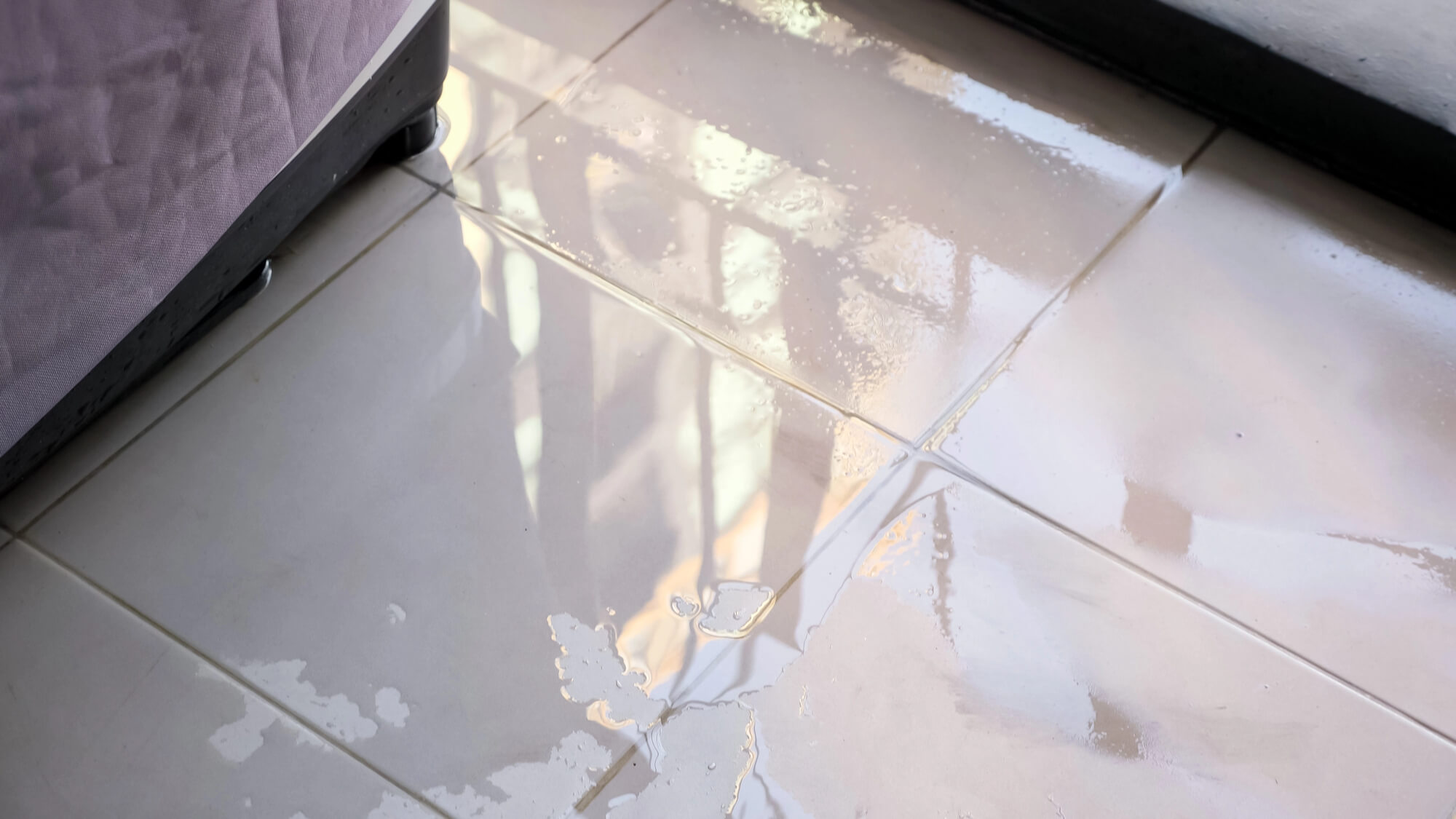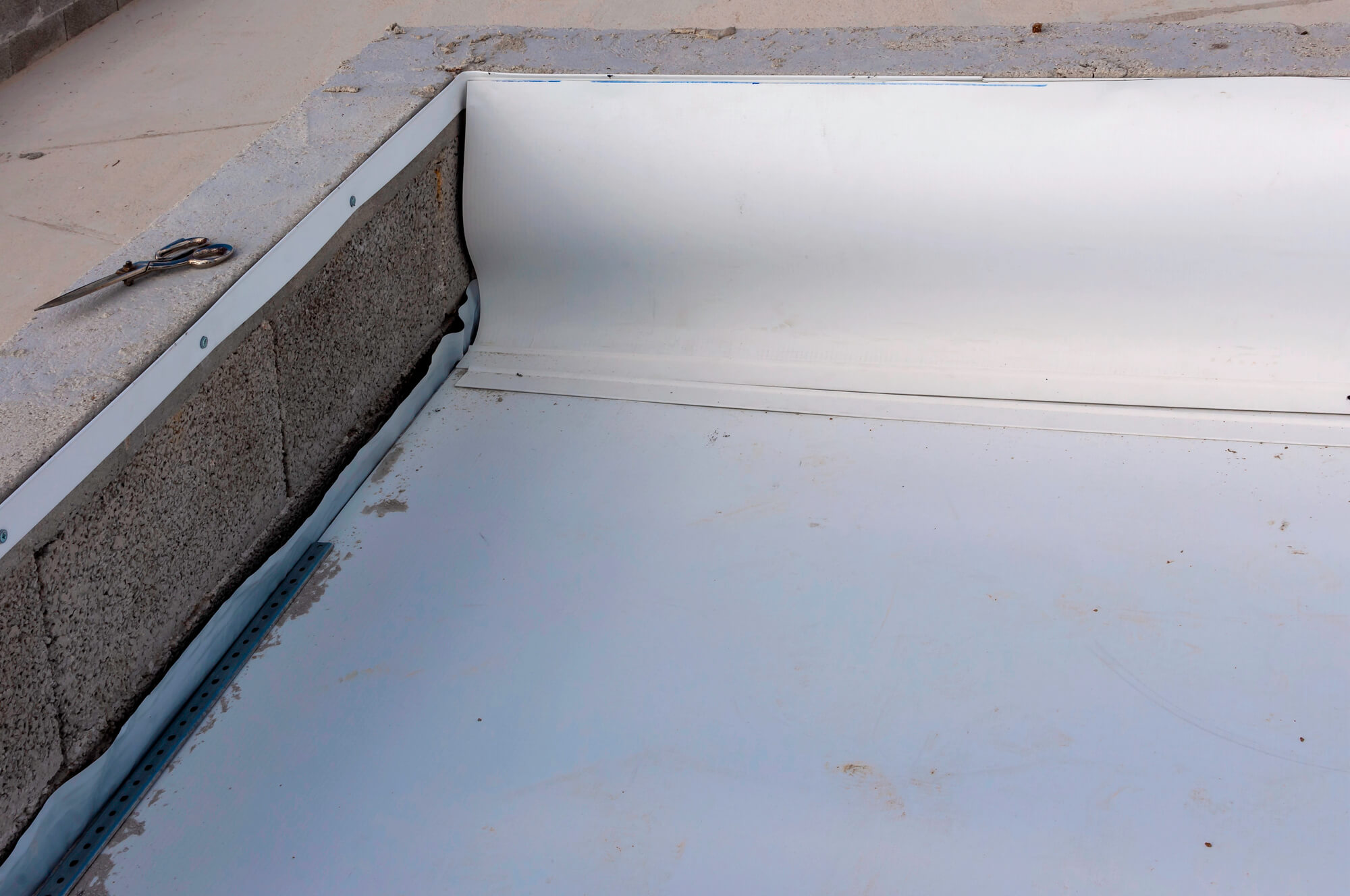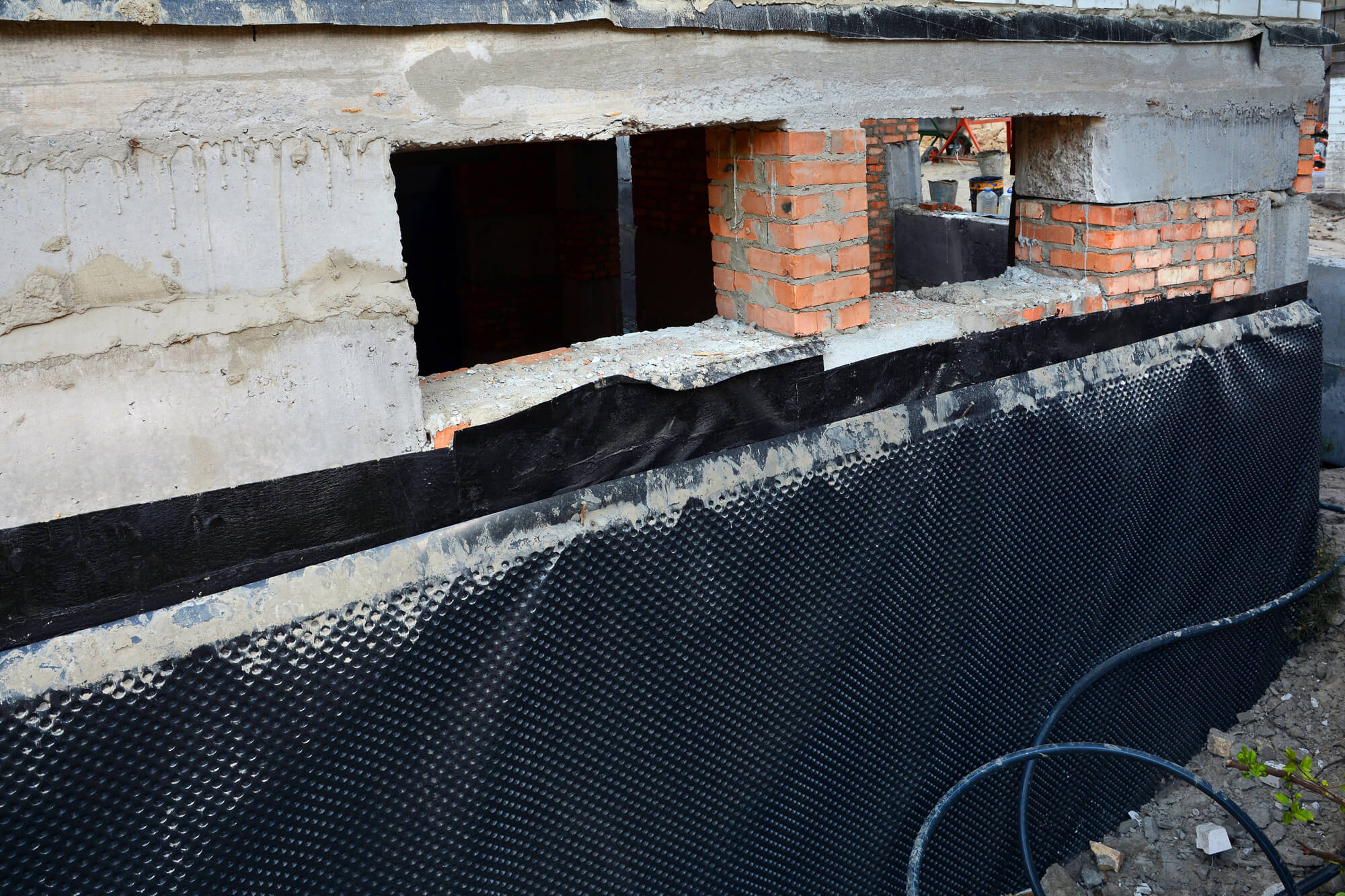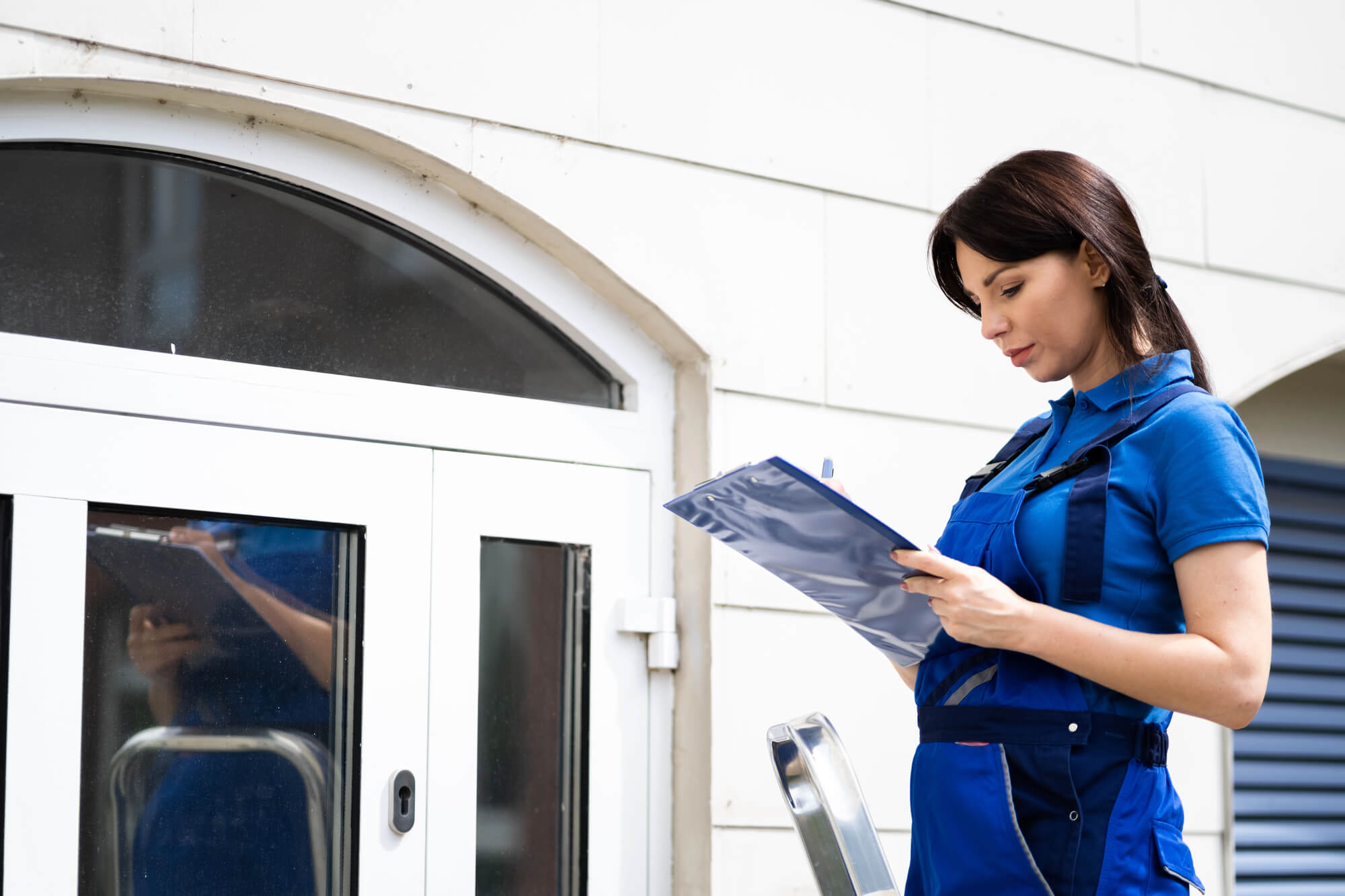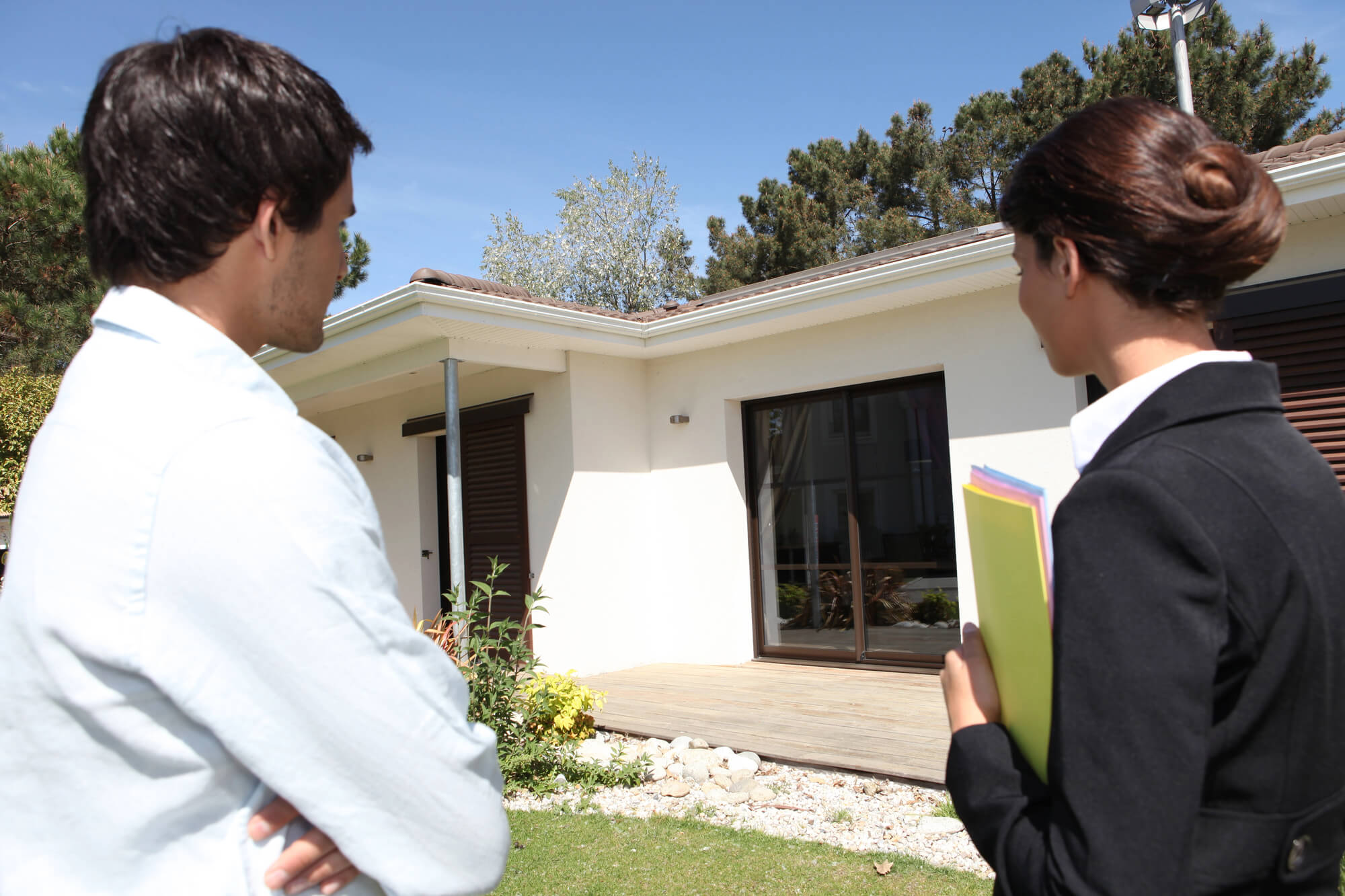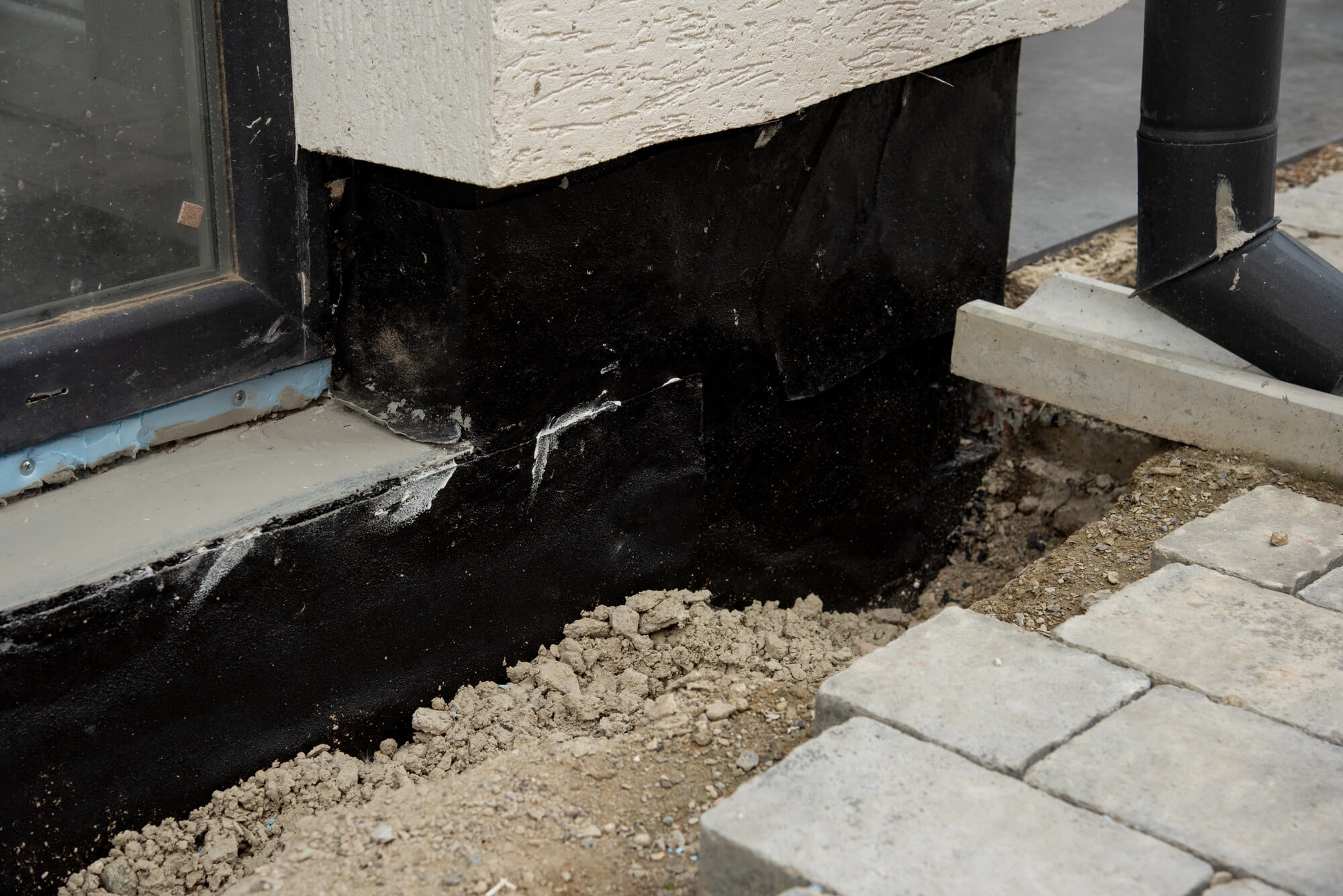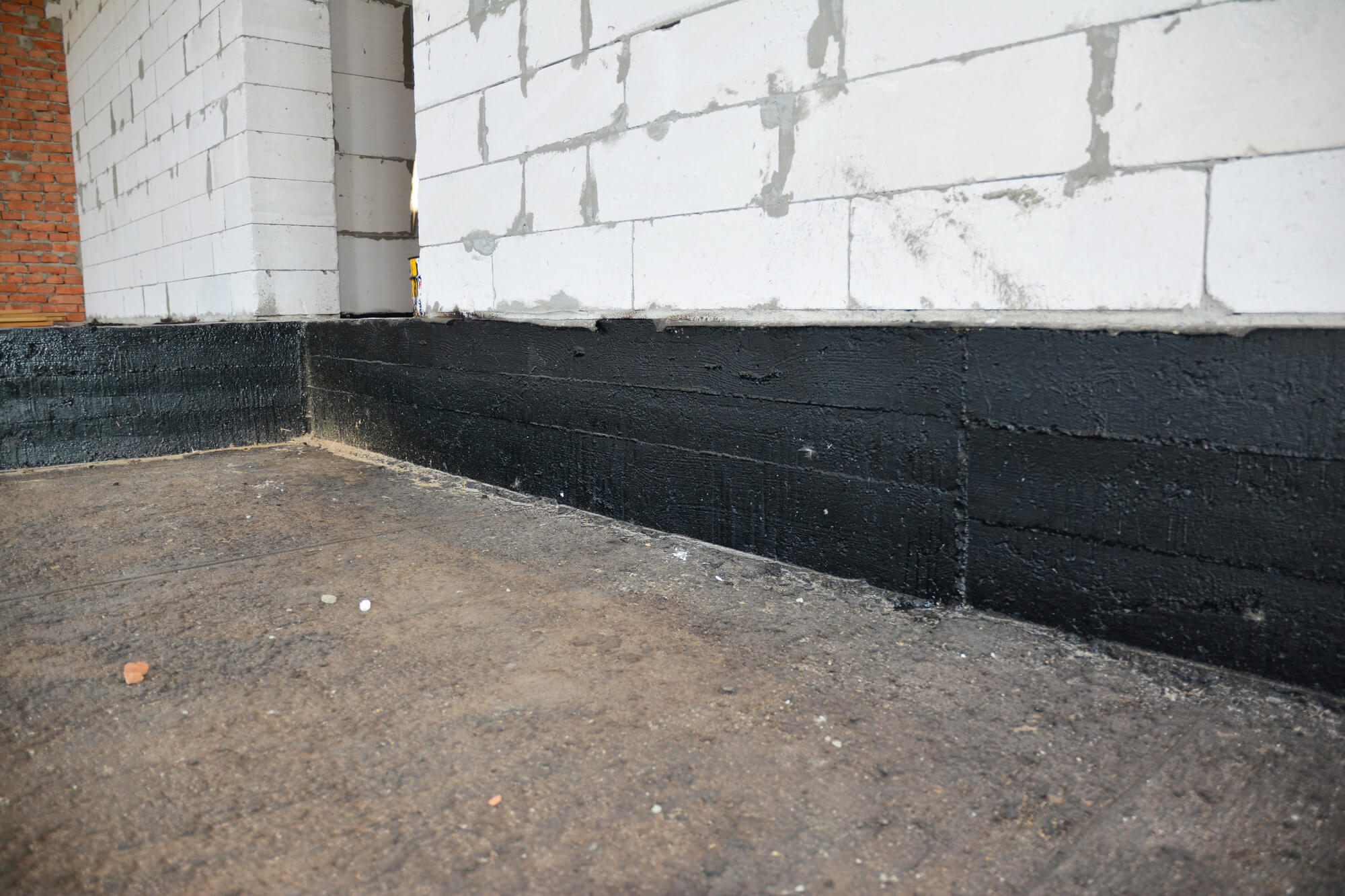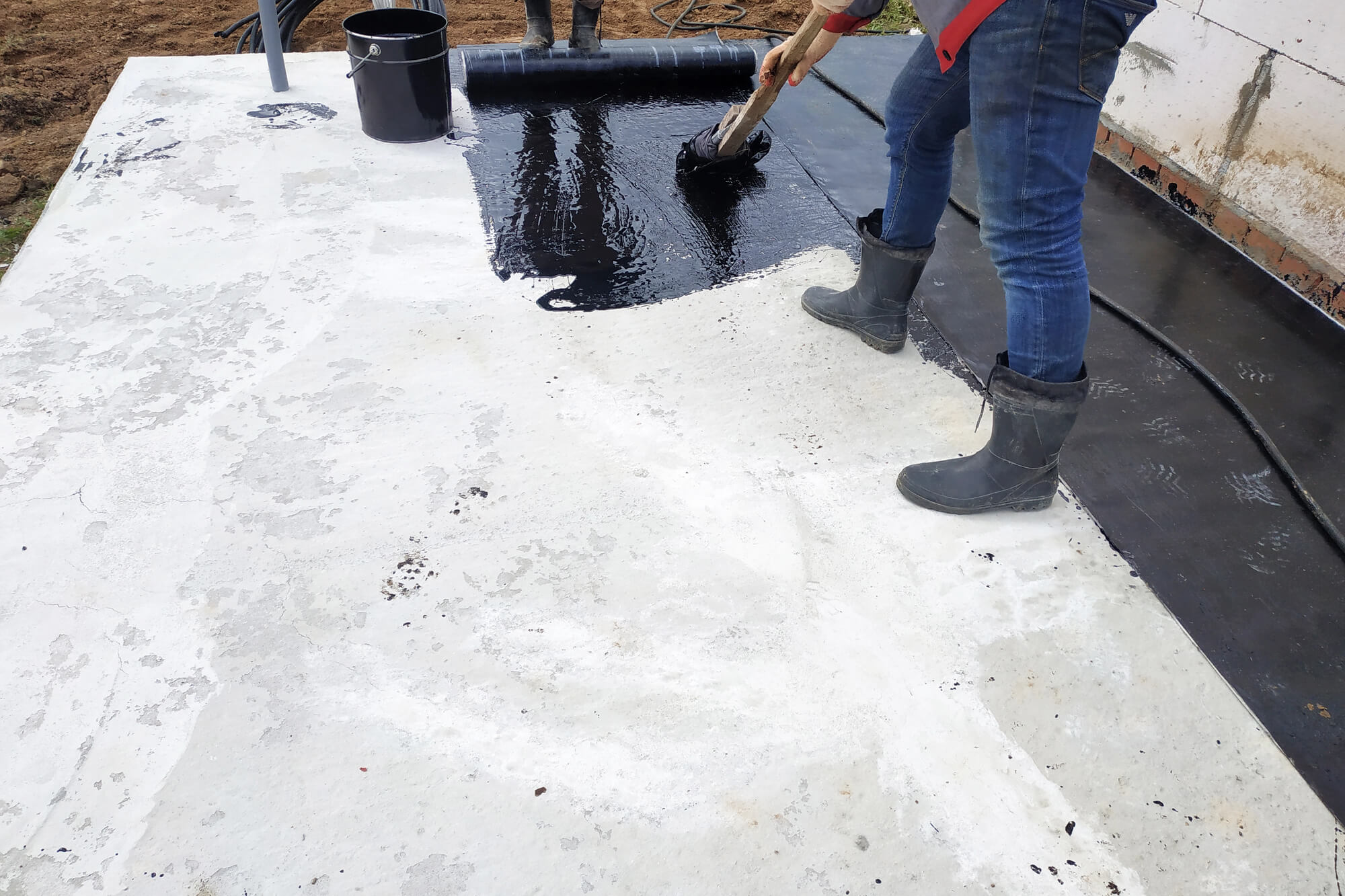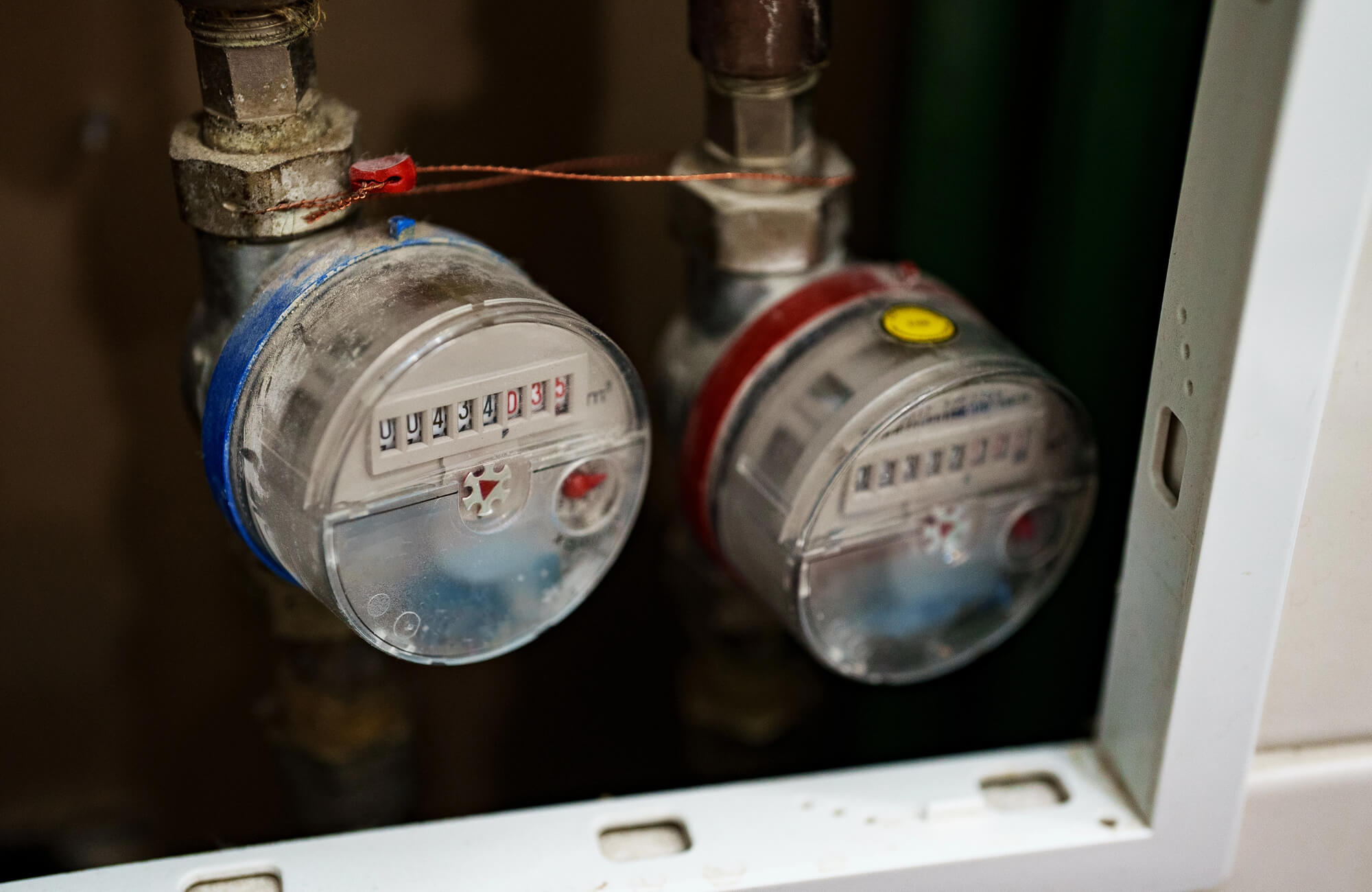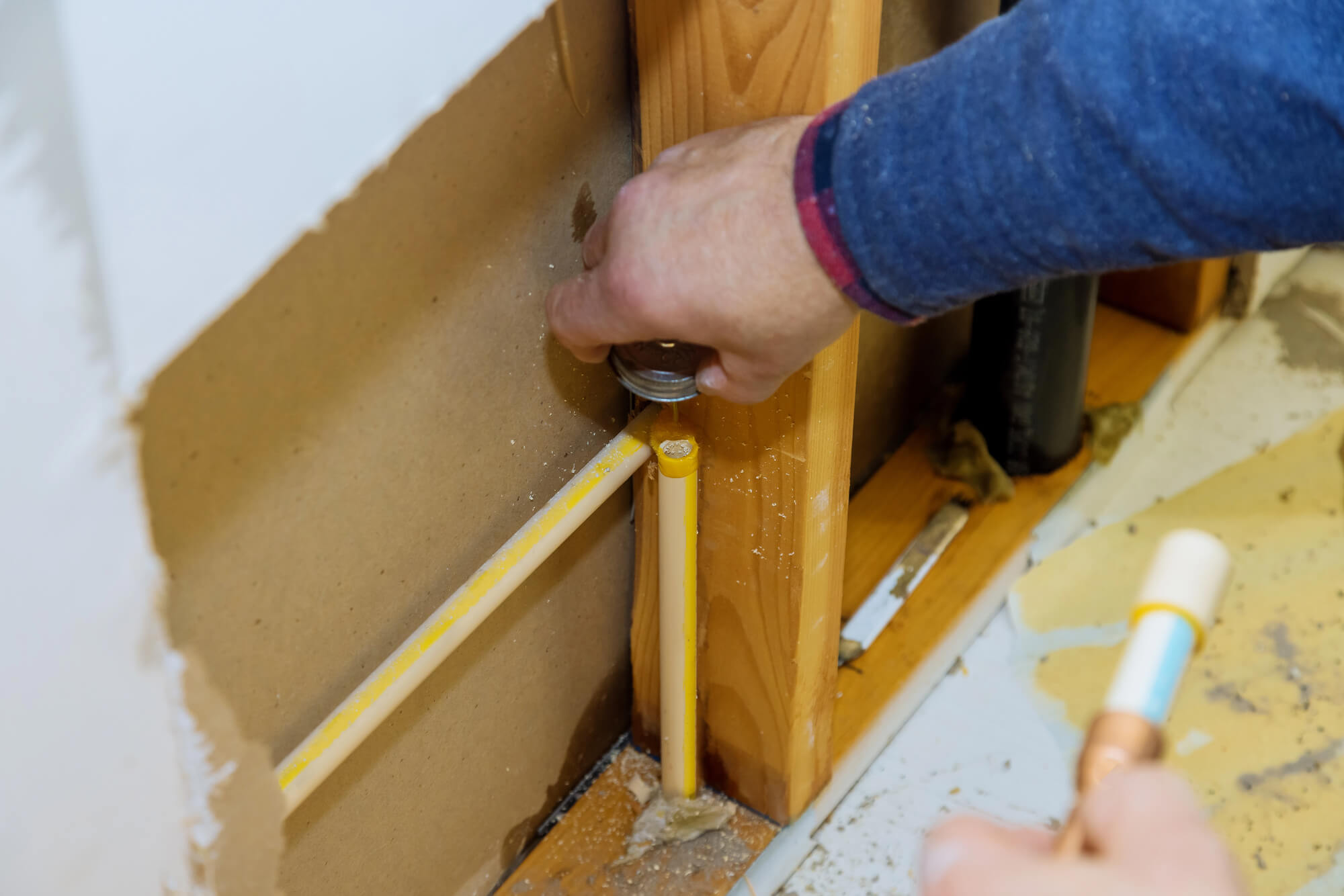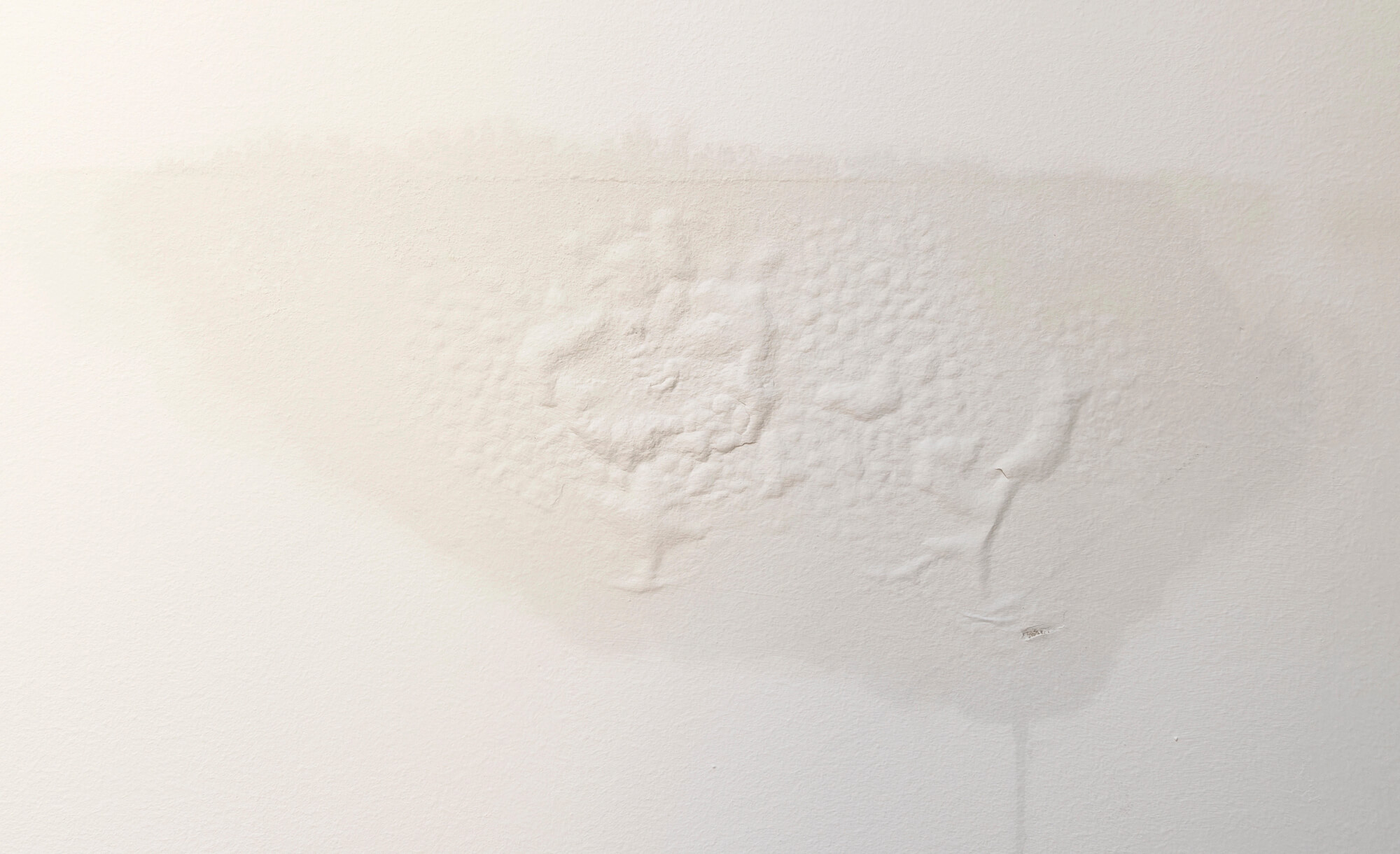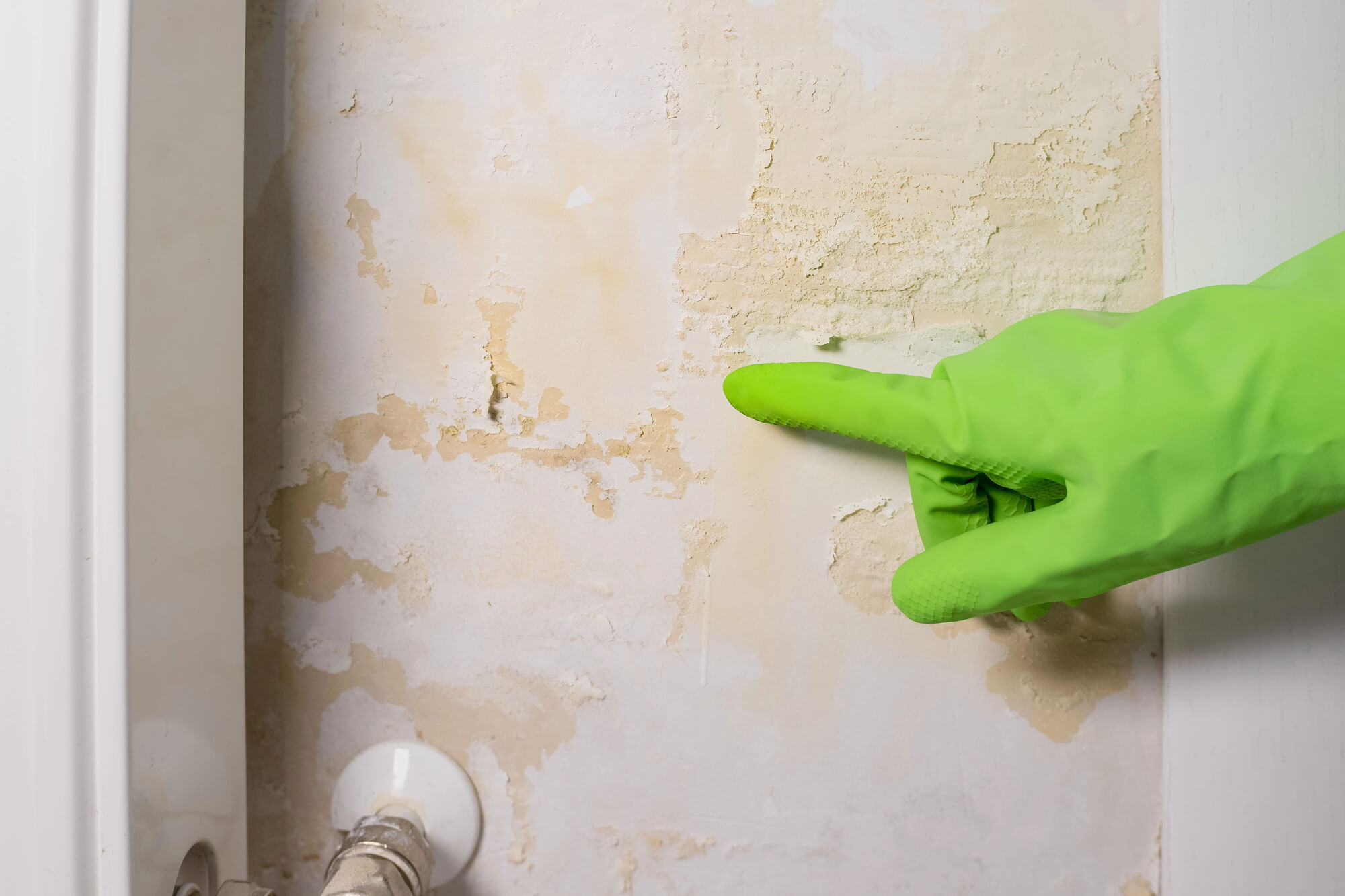For many Texas homeowners, plumbing problems don’t always start with a dripping faucet or a burst pipe you can see. Some of the most damaging plumbing leaks happen completely out of sight, beneath the concrete foundation. Known as under-slab plumbing leaks or slab leaks, these hidden issues quietly release moisture into the soil below your home, setting off a chain reaction of foundation shifts, cracks, rising water bills, and long-term structural damage.
Because most Texas homes are built on a concrete slab foundation, plumbing systems and water lines are installed beneath the slab and buried in Texas soil with a high clay content. When a water line, especially older copper or galvanized steel piping, begins to corrode or fail, the escaping water saturates the surrounding soil. In areas with expansive clay soil, that added moisture leads to soil movement, uneven pressure, and visible damage inside the home, from cracked tile and laminate flooring to mold growth and persistent damp spots.
In this guide, we’ll break down what under-slab plumbing leaks are, why they’re especially risky for Texas homeowners, and how modern slab leak detection and non-invasive leak detection technology can help catch problems early, before minor plumbing issues turn into major foundation repairs.
What Are Under-Slab Plumbing Leaks?
An under-slab plumbing leak occurs when a pipe within your home’s plumbing system, typically a hot water line, cold water line, or part of a hot water recirculation system, begins leaking beneath the concrete slab.
How Plumbing Systems Beneath the Slab Work
In most Texas homes, plumbing systems are installed before the concrete slab is poured. Water lines, often made of copper or galvanized steel in older homes, run through trenches in the soil and enter the home from below. These pipes carry water under constant pressure, and when that pressure is too high or when friction increases due to mineral buildup or poor water quality, pipes become more vulnerable to corrosion and failure.
As pipes deteriorate, small pinhole leaks can form. These leaks may seem minor, but over time, they lead to water pooling, erosion, and shifting soil that places uneven stress on the concrete foundation.
In Texas, where clay soil expands when wet and contracts when dry, this cycle accelerates foundation movement and increases the risk of cracks forming in floors, walls, and the slab itself.
Why Slab Leaks Are So Hard to Detect
One of the biggest dangers of under-slab plumbing leaks is how difficult they are to identify without professional help. Because the leak is buried beneath concrete, homeowners often only notice indirect symptoms, such as higher water bills, unexplained hot spots on floors, damp areas near walls, or the smell of mold and mildew caused by excess moisture.
Modern slab leak detection relies on advanced technology designed to locate leaks without tearing up flooring or breaking into the slab unnecessarily. Professional plumbers and foundation specialists use:
- Electronic listening devices to hear water escaping under pressure
- Infrared cameras to identify temperature differences from hot water lines
- Pressure testing to isolate sections of plumbing
- Specialized leak detection tools for precise, non-invasive diagnosis
These non-invasive leak detection technologies are critical for Texas homeowners, allowing slab leaks to be confirmed early, before moisture leads to foundation cracks, mold growth, or widespread water damage.
Why Under-Slab Plumbing Leaks Are Especially Dangerous to Texas Foundations
Under-slab plumbing leaks can be destructive in any home, but for Texas homeowners, the risks are significantly higher due to a combination of soil composition, climate extremes, and foundation design.
Expansive Clay Soil and Soil Movement
Most Texas homes are built on concrete slab foundations that sit directly on soil with a high clay content, creating an environment where even small plumbing leaks can lead to major structural consequences.
When water from a slab leak seeps into the soil beneath the foundation, the clay absorbs it and expands. During dry periods or extreme heat, the soil contracts again. This constant cycle of expansion and contraction causes soil movement that places uneven pressure on the concrete foundation.
Soil Erosion Leading to Loss of Support Beneath the Slab
As water from an under-slab plumbing leak escapes into the soil, it might also begin to wash away or soften the material supporting the concrete foundation. In Texas soil with high clay content, this excess moisture causes the soil to expand unevenly, while drier areas remain contracted. Over time, this imbalance creates voids beneath the slab and weakens its ability to remain level.
Without uniform support, sections of the foundation may settle or shift, leading to uneven floors and structural stress throughout the home.
Extreme Heat and Moisture Imbalance
Texas weather intensifies the impact of slab leaks. Prolonged periods of extreme heat dry out the soil around the foundation, while sudden heavy rainfall or ongoing plumbing leaks introduce excess moisture beneath the slab. This moisture imbalance accelerates foundation movement and increases the likelihood of cracking and settling.
Even a slow plumbing leak beneath the slab can dramatically alter soil conditions over time, especially when combined with seasonal droughts and sudden moisture exposure. Without proper drainage and moisture control, the foundation becomes vulnerable to long-term instability.
Increased Pressure and Foundation Cracks
Expansive clay soil saturated by plumbing leaks exerts upward and lateral pressure against the concrete foundation. This pressure can cause cracks to form in the slab, allowing even more moisture to enter and accelerating the damage. As cracks widen, they become pathways for additional water intrusion, worsening both foundation and interior damage.
Higher Water Pressure and Neighborhood Plumbing Systems
Many Texas homes experience higher-than-recommended water pressure, sometimes exceeding 80 psi. Excessive water pressure puts constant stress on plumbing systems and water lines, increasing the risk of leaks developing beneath the slab. Older neighborhood plumbing systems may also contribute to inconsistent pressure and water quality issues, further accelerating pipe wear.
Long-Term Foundation Shifts and Structural Instability
If under-slab plumbing leaks are left unaddressed, ongoing soil movement can lead to long-term foundation shifts. These shifts affect the entire structure of the home, causing misaligned doors and windows, sloping floors, and stress on load-bearing components.
In severe cases, the foundation may require extensive repair to restore stability, often combined with plumbing repairs to prevent the issue from recurring. Addressing slab leaks early is critical to stopping this cycle before foundation damage becomes widespread and costly.
Common Causes of Under-Slab Plumbing Leaks
Under-slab plumbing leaks rarely occur without warning. In most cases, they develop gradually as a result of aging materials, environmental stress, and ongoing plumbing issues.
Pipe Corrosion and Aging Materials
Many older Texas homes were built with copper or galvanized steel pipes running beneath the concrete foundation. While these materials were once considered durable, they are vulnerable to corrosion over time. Soil chemistry, water quality, and friction between pipes and surrounding materials gradually wear down the pipe walls, leading to pinhole leaks or cracks.
Hot water lines are especially susceptible to corrosion due to constant temperature changes, which accelerate material breakdown. As corrosion progresses, small leaks can form and remain undetected beneath the slab for long periods.
Excessive Water Pressure
Water pressure plays a major role in under-slab plumbing leaks. When pressure consistently exceeds safe levels, it stresses joints, fittings, and pipe walls throughout the plumbing system. Over time, this stress weakens the pipes, making them more likely to crack or rupture beneath the slab.
Pressure-related plumbing problems are common in Texas homes and often go unnoticed until rising water bills or foundation symptoms appear.
Soil Shifting and Foundation Movement
Soil movement caused by expansive clay and fluctuating moisture levels places physical stress on pipes buried beneath the slab. As the foundation shifts, pipes may bend, rub against concrete, or become misaligned. This constant friction increases the risk of damage, especially where pipes pass through or rest directly against the concrete foundation.
Once the slab begins to shift, plumbing problems often worsen, creating a cycle where leaks contribute to foundation movement and foundation movement causes additional plumbing leaks.
Poor Installation and Drainage Issues
In some cases, under-slab plumbing leaks stem from poor installation practices or inadequate drainage beneath the slab. Pipes installed without proper bedding or support are more likely to experience stress and movement over time. Inadequate drainage allows moisture to remain trapped beneath the foundation, increasing the risk of corrosion and water damage.
When these factors combine, even a small plumbing issue can escalate into a serious slab leak that threatens both the plumbing system and the structural integrity of the home.
Warning Signs of an Under-Slab Plumbing Leak
Because under-slab plumbing leaks occur beneath the concrete foundation, they rarely announce themselves with obvious, visible water. Instead, Texas homeowners often notice indirect warning signs that point to hidden plumbing problems developing below the slab.
Catching these signs early can help prevent serious water damage, mold growth, and foundation issues.
Common warning signs of an under-slab plumbing leak include:
- Sudden or unexplained increases in water bills, even when household usage hasn’t changed
- Damp spots, discoloration, or moisture seeping through flooring or baseboards
- Warm or hot spots on floors, especially near hot water lines
- Cracks forming in tile, laminate flooring, drywall, or the concrete slab
- The sound of running water when all fixtures and appliances are turned off
- Persistent mold and mildew odors, or visible mold growth along walls or flooring
- The appearance of a black fungal substance near damp areas indicates prolonged moisture
- Low or inconsistent water pressure throughout the home
- Water pooling near the foundation or unexplained drainage issues around the property
While any one of these signs may have multiple causes, several appearing together strongly suggest a slab leak and warrant professional leak detection.
Moisture-Related Damage Beyond the Foundation
While foundation damage is often the most serious consequence of under-slab plumbing leaks, excess moisture beneath the slab can affect many other parts of a home. Because slab leaks release water continuously, moisture problems tend to spread outward and upward, impacting flooring, indoor air quality, and overall living conditions.
Flooring and Interior Material Damage
Moisture rising from beneath the slab often first shows itself through flooring materials. Tile may loosen or crack as the slab shifts beneath it, while laminate flooring can warp, swell, or separate at the seams. In homes with carpet, padding may stay damp for extended periods, leading to odors and deterioration.
Baseboards, drywall, and lower wall sections can also absorb moisture, resulting in staining, peeling paint, or soft, damaged materials that require replacement.
Mold Growth and Indoor Air Quality Concerns
Persistent moisture beneath a home creates ideal conditions for mold growth. Mold and mildew often develop out of sight first, spreading behind walls or beneath flooring before becoming visible. Over time, this may lead to musty odors, visible mold patches, or even the appearance of a black fungal substance in areas with prolonged dampness.
Beyond property damage, mold can negatively impact indoor air quality and contribute to respiratory irritation, allergies, and other health concerns for occupants.
Escalating Water Damage and Utility Costs
Even small under-slab plumbing leaks can waste a significant amount of water over time. Continuous water loss leads to higher water bills and places unnecessary strain on plumbing systems. Left unresolved, the combination of water damage, mold remediation, and structural repairs can dramatically increase overall repair costs.
Slab Leak Detection: Finding the Problem Early
Because under-slab plumbing leaks occur beneath the concrete foundation, professional slab leak detection is essential for accurate diagnosis without unnecessary disruption to the home.
Why Early Detection Matters
Identifying a slab leak early helps prevent extensive soil movement, foundation cracks, and widespread water damage. Early detection also reduces the likelihood that flooring or interior finishes will need to be removed to access damaged pipes.
For Texas homeowners, early intervention is especially important due to expansive clay soil and extreme weather conditions that amplify the effects of moisture imbalance beneath the slab.
Modern, Non-Invasive Leak Detection Technology
Today’s slab leak detection relies on advanced, non-invasive technology designed to locate leaks with precision. These methods allow professionals, like those at Above All Foundation Repair, to confirm the presence and approximate location of a leak without breaking through flooring or concrete unnecessarily.
Common leak detection tools include:
- Electronic listening devices that detect the sound of water escaping under pressure
- Infrared cameras that identify temperature differences from leaking hot water lines
- Pressure testing to isolate sections of the plumbing system and confirm leaks
With a combination of multiple detection methods, specialists can pinpoint plumbing leaks efficiently and recommend the most appropriate repair strategy.
Repair Options for Under-Slab Plumbing Leaks
Once a slab leak has been confirmed, the next step is determining the most effective repair approach. The best solution depends on the severity of the leak, the condition of the plumbing system, and the extent of any foundation impact.
Direct Pipe Repair or Replacement
In cases where a leak is isolated and easily accessible, direct repair or replacement of a damaged section of pipe may be possible. While effective, this approach can require cutting through flooring or concrete, making it more disruptive in finished living spaces.
Rerouting or Re-Piping Water Lines
For homes with recurring plumbing leaks or aging pipes, rerouting or re-piping water lines may provide a longer-term solution. This method bypasses damaged under-slab pipes altogether, reducing the risk of future leaks beneath the foundation.
Underground Tunneling
Underground tunneling allows professionals to access plumbing beneath the slab without breaking through interior flooring. By creating controlled access points around the home’s perimeter, repairs can be made while minimizing disruption to living spaces. This approach also allows for soil stabilization and foundation assessment at the same time.

